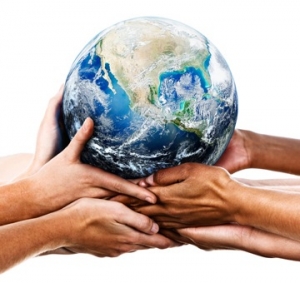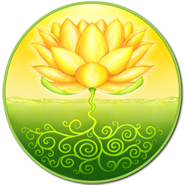 When Goodness Gets Going
When Goodness Gets Going
STORIES OF COMPASSION MOVING INTO ACTION
Trust your own goodness; offer it with kindness and joy.
- What experiences, teachings, values, or insights supported your inspiration to serve your world?
- When did you first act on this inclination or calling?
- Whether it was a winding path or transformative moment, share your process of moving from concern about a social or environmental issue into beneficial action.
Please share your stories via the comment box below.
JASMINE BURTON JULY 2014
I have an undeniable passion for serving others. With a dream of becoming a humanitarian for developing nations, I love to inspire and be inspired by the world around me. As a student at Georgia Tech, I have been blessed with a plethora of opportunities from which I continue to grow. Participating in the Georgia Tech Women’s Leadership Conference, the CDC’s Summer Public Health Scholars Program at Columbia University, and my Industrial Design studio classes that emphasize ethnographic research, I have had the opportunity to learn about and experience the public health needs and social justice disparities in low-income communities and in the world around me.
My specific design passion is to improve women’s health by means of redesigning WASH infrastructure (such as toilets and menstrual hygiene products) in and for these communities. According to UNICEF, 2.6 billion people lack hygienic sanitation facilities and 768 million people drink unsafe drinking water and, of these people, women and girls are disproportionately burdened by poor sanitation and water inequities. These statistics are what motivates me to pursue work in the field of sanitation and what makes me passionate about the success of SafiChoo, a company that I started with 3 other GT girls through which we design and implement toilets in developing communities. This summer we built and tested 14 toilets in a semi-rural area outside of Nairobi, Kenya called Naivasha as well as in the Kakuma Refugee Camp. Additionally, this summer, I participated in a social justice and human rights fellowship called Humanity in Action and was placed to work in Poland for a month. I focused on advocating for refugee rights through a social campaign I created with a Ukrainian and Polish girl called FreeRefugee. I would one day like to pursue a Masters in Public Health with a focus on global maternal health and gender studies while also continuing work in the nonprofit and social enterprise sector. Ultimately, I seek to use my creativity to make the world smile.
Jasmine Burton is an industrial designer and global humanitarian. Jasmine and a team of women created a company called SafiChoo that designs and implements WASH infrastructure to address public sanitation needs while attending college at Georgia Tech. As the Graphic and Product Designer for SafiChoo, she uses her design skills to create low-cost sanitation devices for needy communities all over the world.
BARBARA LAVENDER MAY 2014
Recently, I was asked, “What made you so helpful?” The gentleman sitting near my wheelchair in remote Tanzania was about thirty years younger than I am. His question reignited an ongoing self-inquiry about what factors had inspired my lifelong commitment to pursuing a purposeful life. What contributed to my decisions and actions that have prioritized community service for over 50 years?
For me, “purposeful living” encompasses actions that are helpful to others, serving what can be called “the greater good.” I’m deeply grateful for the upbringing and education that I’ve had the good fortune to receive. When I was a little girl, my mother enlisted my help with a mailing campaign for a local charity. She took me with her to volunteer at an inner city orphanage, and invited deaf children from another orphanage to stay with us on weekends. Early In my life, my mother woke me up to the disadvantages many people live with, and, as my first role model, showed me how it was possible to help.
Later, my brother took me to participate in peace and civil rights marches. After medical school, Paul directed a relief team in Sudan for refugees, and volunteered in many other philanthropic activities. It was the late 1960’s and I embraced the social justice values inspiring the civil, environmental, and women’s rights movements of that era.
Participating within large communities of activists challenging cultural assumptions in effective ways inspired my spirit and fed my aspirations to live a helpful, purposeful life. Our voices, protests, and demonstrations eventually ended the Vietnam War as racial and gender equity began to increase across the nation. These successes were positive reinforcements for our activism that created momentum. I developed a hopeful worldview based on the trust that thoughtful, committed citizens could make real differences in the world. These experiences sustained subsequent social justice efforts, some of which took much longer to yield results.
In the 60’s and 70’s, our altruism was sustained by our willingness to enjoy life and have fun as well as strive sincerely in our meaningful work. There was no inconsistency between organizing a project by day and joyously dancing to our favorite music into the night. I was lucky to be born at a time when widespread, influential social movements fed my aspirations and personal philosophy that governs my work. I find that many young people engaged in international aid work today seem reluctant to shed some of their heavy burdens, engage in self-care, and have fun. As a result, they suffer from burnout more than my friends did.
There are two important lessons that I’ve learned from international volunteer work. One is that our educational opportunities have given us abilities that can uplift the human condition. The tools in our toolbox include problem solving and organizing skills as well as knowledge, appropriate technology, and financial resources. I ask people, “What do you want to accomplish and how can I help? Which tools in my toolbox do you need to accomplish your goal?” The second lesson is that it takes very little to make a difference and brings joy to the givers as much as the recipients. Happiness increases when we use our personal gifts and resources to benefit others.
Barbara Lavender in an internationally renowned attorney. As a strong advocate for human rights, Barb has increased social justice through landmark cases that she represented at the U.S. Supreme Court. Her local and global community service includes pro bono legal council for women seeking refuge in safe houses, juveniles considered delinquent, and for Native Americans and LGLB communities as well as international aid work with African orphans, Burmese refugees, and environmental activists. She deeply appreciates her global network of friends and her healthy, happy son and grandchildren. Despite the increasing physical limitations of adult-onset muscular dystrophy, Barb discovers new avenues to uplift the human spirit and mobilize her goodness to go. Currently, she’s writing a book for college programs focused on envisioning and creating purposeful life work and service.

